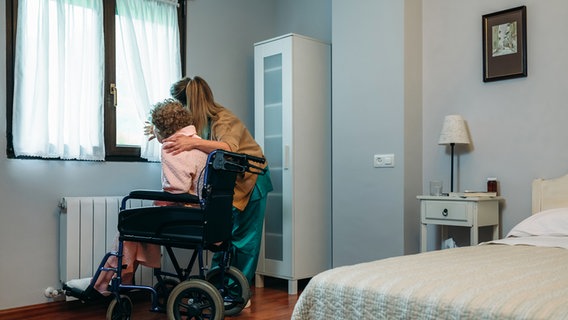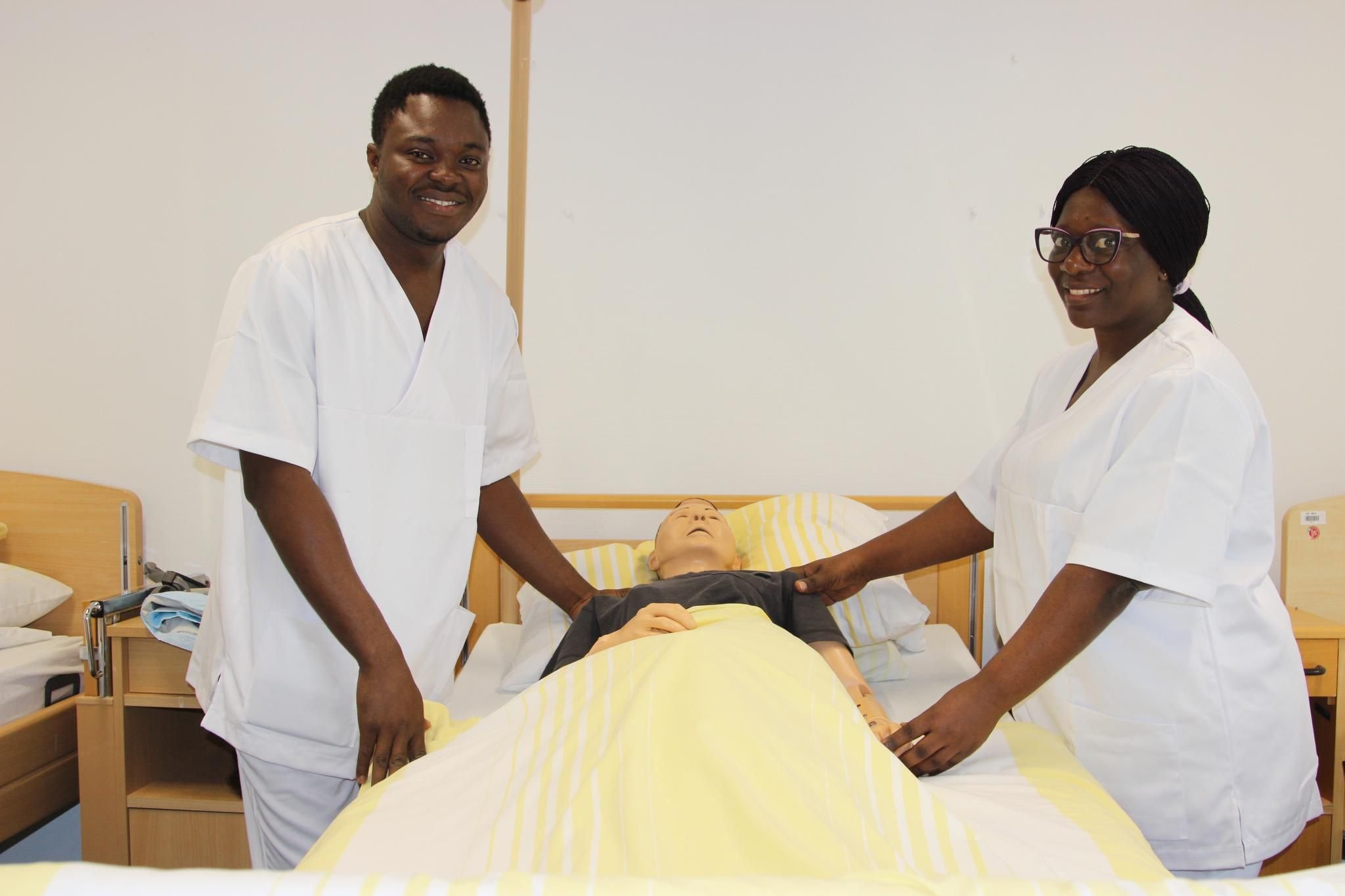As of: April 24, 2024 2:30 p.m
Anyone who needs care or help in everyday life in old age can receive benefits from long-term care insurance. What are the requirements? What services are there? Tips for applying.
Anyone who would like to receive money from nursing care insurance must submit an application. Applicants are the person in need of care or an authorized person, such as a relative. Requirement to receive benefits from nursing care insurance: A level of nursing care must be determined. The amount of the subsidy depends on the degree of need for care. The money can be used for help in your own home through an outpatient care service or for a place in a nursing home.
Submit an initial application to the nursing care insurance fund
The first point of contact are the nursing care funds that are affiliated with the health insurance companies. It is sufficient to write to the responsible health insurance company informally – with the note that to apply for nursing care insurance benefits and to request that they be forwarded to the nursing care insurance fund. Applicants will then receive written documents from the nursing care insurance fund and, in addition to personal data, must indicate which benefits they would like to apply for. The consumer advice center explains, how to fill out the form. Some health insurance companies also offer initial applications online. Those with private insurance submit an application to private nursing care insurance and contact their health insurer.
Experts assess the level of care
The nursing care fund informs the medical service of the health and nursing care funds (MD), which sends an expert to the applicant. For those with private nursing care insurance, this is usually the medical service Medicproof. The assessor questions the person in need of care in detail to determine what support is necessary and to what extent. Relatives or a trusted person should be present at the appointment, which in some cases only takes place by telephone. Independence and skills are assessed in six areas of life, so-called modules:
- mobility: How limited is your physical mobility, for example when standing up or climbing stairs?
- Mental and communication skills: It’s about speaking and understanding, temporal and spatial orientation.
- Behaviors and psychological stress: The topic is fears and reactions to relatives or carers.
- Self-sufficiency: Can the person concerned wash and dress themselves, eat and drink?
- Dealing with illness or therapy-related requirements: Do applicants take medication as prescribed, do they use aids in a targeted manner and can they see a doctor?
- Shaping everyday life: Do you plan the day yourself, are there contacts and connections with other people?
From these assessments, the expert determines a point value that ultimately corresponds to one of five levels of care. It also includes the areas of “activities outside the home” and “household management”, which, however, are not included in the assessment. The consumer advice center gives tips on how to can prepare for the assessment.
Calculate level of care online with tool
Those in need of care and their relatives also receive orientation with the Care level calculator from consumer centers. With the free and ad-free online application, you should be able to assess before submitting your application whether you have a level of care and whether it is worth applying for long-term care insurance benefits. The tool guides you through the modules step by step and provides explanations. The level of care determined provides a good basis for preparing for an assessment by the medical service.
How much money is there from the nursing care fund?
Benefits from long-term care insurance are only available if the applicant has paid into the long-term care fund for at least two years in the past ten years or is insured under family insurance. The amount depends on the level of care on the one hand and the type of support on the other. Those in need of care can receive support in various ways:
- Care allowance: If you organize home care yourself, you can have care allowance paid out. For example, relatives, friends or self-appointed staff can take over the care. The care allowance is between 332 euros per month for care level 2 and 947 euros for care level 5.
- Care benefit in kind: Care is provided at home by an outpatient care service. The nursing care fund then pays between 761 euros (care level 2) and 2,200 euros (care level 5) to the nursing service each month.
- Fully inpatient care services: The nursing care insurance fund pays between 125 euros (care level 1) and 2,005 euros (care level 5) for accommodation in a nursing home. There is also a performance surcharge in addition to the high costs of care.
If the benefits in kind are only partially used, the person in need of care receives a proportionate care allowance. This can be used, for example, to pay a relative for their help. People with care level 1 do not receive any care allowance, but only a “relief contribution” of 125 euros per month, which they can use to pay for recognized offers of help. This amount for support in everyday life is available to all those in need of care who are cared for at home. A The consumer advice center provides an overview of the care services.
Level of care: How long does the determination take?
The law stipulates that there may be a maximum of 25 working days between the application and the written notification of the approved level of care. If the level of care is rejected or you believe the classification is incorrect, you can file an objection. Support is provided here Social Association Germany or the private provider Nursing guardian in Hanover. People who already have a level of care but now need more help should contact their health insurance provider again.
Get free advice at care centers
You can find out more about nursing care insurance benefits from the nursing care insurance companies. Their care advisors provide information and also know them Addresses of care bases that exist in many cities. The support points provide free advice on all questions relating to care.
Further information
Keywords for this article
Care










